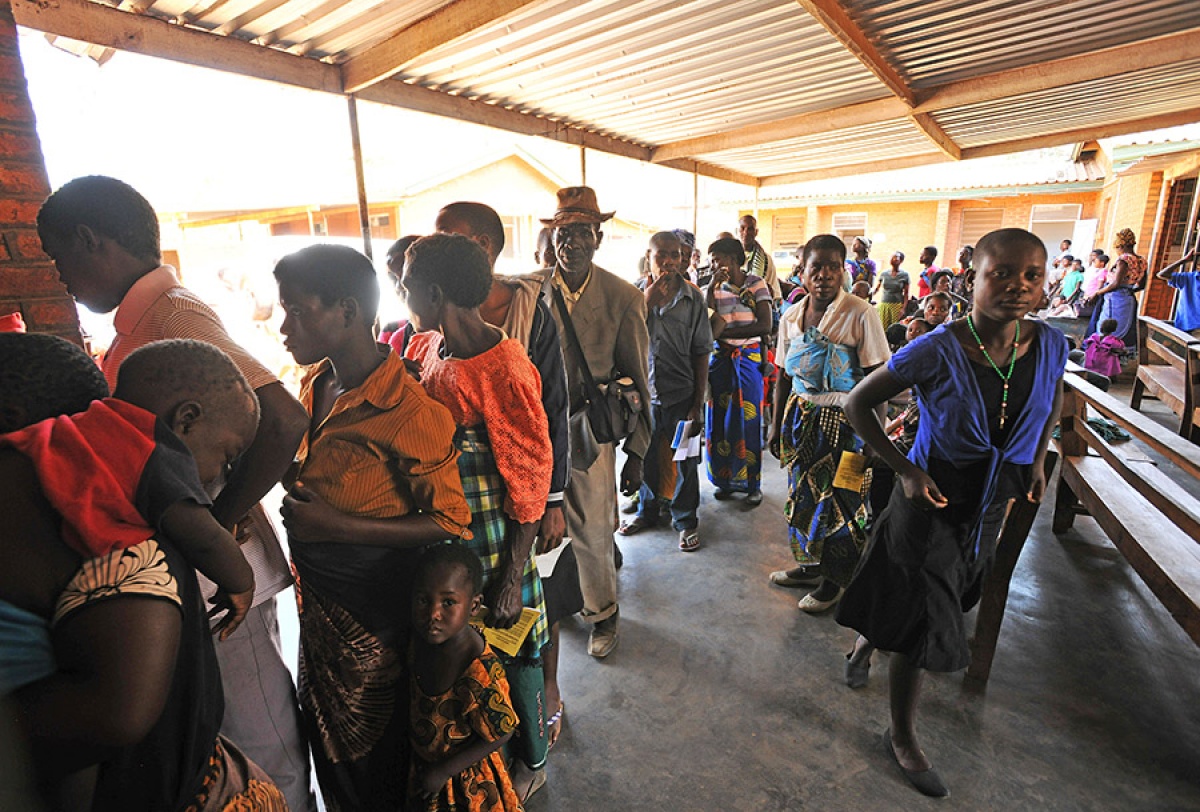Iconic Hospital in Malawi to Expand
Posted on Jul 25, 2017

One of the first patients Dr. Emily Wroe met in Malawi, the slender nation bordered by Tanzania to the north and Mozambique to the south, was a pregnant mother with severe rheumatic heart disease. “Normally a patient in her condition can’t climb a flight of stairs,” says the Partners In Health clinical director for the country. “This woman, Nimiya, she walked seven hours to the clinic.”
Soon Wroe and fellow PIH staff will be able to help more women fiercely determined to get better. With donors’ support, PIH and the Ministry of Health will break ground on an outpatient clinic at Neno District Hospital this fall. The new single-story building will sit next to the main facility and will include smartly designed check-in areas, consultation spaces, and exam and treatment rooms. Thousands of sick people, who now sometimes face long queues, will be diagnosed and started on treatment for a variety of illnesses—in a single visit. “It’s so exciting to be able to match health service and infrastructure design, and meet such a tremendous community need,” says Wroe. “It makes care much more accessible.”
The new clinic adds to services that Ministry of Health clinician Grant Gonani already calls “awesome.” In 2007, the government of Malawi invited Partners In Health to work in Neno, a rugged district of hills, maize and potato fields, and weak health care. Most pressingly, local farmers, earning less than $1 per day, were suffering some of the worst rates of HIV on the continent. Roughly 1 in 7 adults in the district were infected.
PIH dove in head-first. Staff constructed health centers; hired and trained hundreds of people in the community as health workers; and built Neno District Hospital as the centerpiece of a revitalized health system. HIV survival rates in the district skyrocketed, becoming the highest in the country, with 90 percent of patients alive one year after starting treatment. The hospital grew busy, despite the fact that for many, the easiest route to it still involves a long walk and fording a river.
The outpatient clinic is a logical next step. People with more routine health needs, and those needing emergency care, will be treated at the facility. They will check in, have their medical records pulled, get tested for common conditions such as HIV and hypertension, be offered family planning, and be treated for everything that’s troubling them—be it HIV or epilepsy, hypertension or diabetes—as they would in the United States, for example.
Astoundingly, the clinic will also be seen as pioneering. Research suggests that Neno District is one of those rare places where patients can have most of their chronic health conditions taken care of in a single visit. In most health care facilities in sub-Saharan Africa, if you come for HIV treatment, for example, you must return later for a diabetes exam.
To doctors who treat women who’ve walked for hours to make an appointment, that, of course, doesn’t sit well. “We’re doing ‘innovative’ stuff,” says Wroe, of the new outpatient clinic, “but actually, most of it is bloody obvious.”

